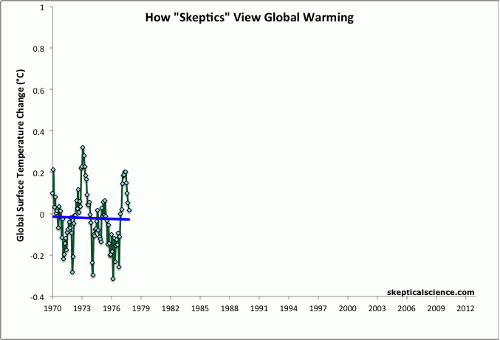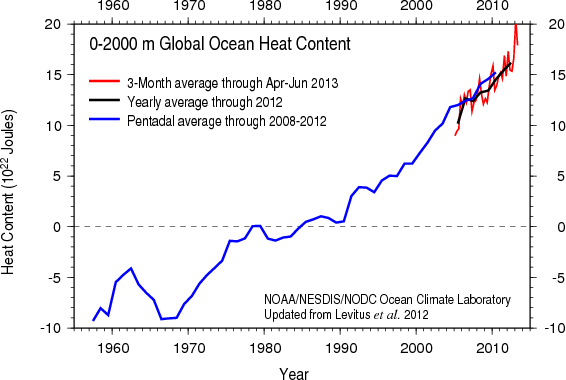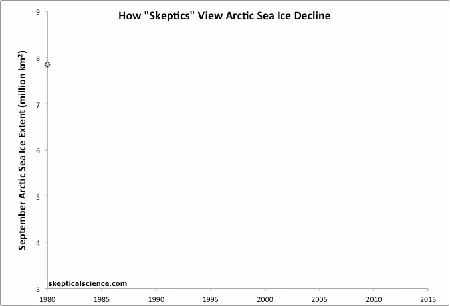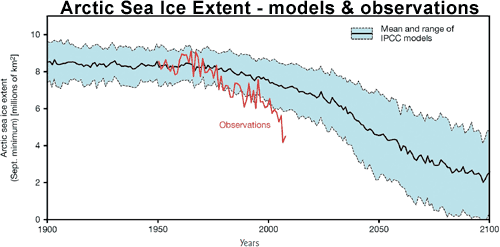The latest IPCC report makes the choice that humanity faces yet more stark, both the clarity of the evidence and the urgency to take action. Yet those who have a vested interest in fossil fuel consumption continue to spread doubt and confusion. Here are some of the myths they propagate:
Myth No. 1: Scientists still aren't certain humans are causing climate change
The latest number put on scientists' certainty is 95%. What does 95% certain mean? That they are about as sure as that cigarette smoking causes cancer. And this is a good analogy for more than one reason. The tobacco industry and its paid lobbyists fought desperately to deny this science when it first emerged. Smoking is also a good example of how humans can be very very bad at taking sensible decisions and weighing up risk. But when it comes to cutting carbon emissions, it's not just our own health and wellbeing we're risking, it's all future generations. It really is time to act.
Myth No. 2. Global warming has stopped.
Unfortunately not. This graph from www.skepticalscience.com rebuts this clearly:

As physicist Richard Muller stated in a recent article, "The current pause is consistent with numerous prior pauses. When walking up stairs in a tall building, it is a mistake to interpret a landing as the end of the climb."
Currently several natural influences would tend to cool the planet, but human influence has overpowered this trend. Solar radiation is at an extreme low, and La Niña conditions have persisted for far longer than normal. Yet we have seen the hottest decade ever. What can we expect when the natural cycles swing round the other way?
Another reason it is misleading to talk of a pause at all becomes clear when we look at the oceans. As land-based creatures, humans tend to think about the temperatures of the air around us and the earth under us. In fact about 90% of additional heat is stored in the oceans - and these show no respite from warming as the graph below demonstrates (read more here).

Myth No.3. Arctic sea ice is recovering.
The Daily Mail and the Telegraph recently published sensationalist articles claiming that Arctic sea ice was 60% larger in August 2013 than in August 2012. Again the mistake here is looking at too short a period of time. This year's higher sea ice extent is merely due to the fact that last year's minimum extent was record-shattering. Dana Nucitelli from Skeptical Science predicted a reaction like this in a graph he produced in 2012, where again the overall trend can obviously be seen.

The truth is that Arctic sea ice has lost 75 percent of its summer sea ice volume over the past three decades. Yearly changes depend on a multitude of factors where in any given year the weather can act to either preserve more or melt more sea ice.
Myth No. 4. The IPCC tends to make alarmist predictions
In fact, the IPCC is extremely cautious when it comes to the science. The graph below shows how past IPCC models have underestimated current trends in Arctic sea ice melt (read more)

More here about IPCC conservatism.
Myth No. 5. We have time.
Global warming is an increasingly urgent problem. The urgency isn't always obvious because some warming is not immidiate and may take years to take effect. Some of the latest research says if we want to keep warming to a minimum, we must leave nearly all of the remaining fossil fuels in the ground. If we do not act now we could push the climate beyond tipping points, where the situation will then spiral out of our control.
In the UK we are at a crossroads when it comes to the future of UK energy, where to secure a fairer future for all, renewables are the only option. Our failure to act is increasingly adding to a huge global social injustice, where those who are poorest and most vunerable will only continue to bare the brunt of our inaction.
The time for talking is over. It is Time To Act!
Our new campaign will be launching this October.




